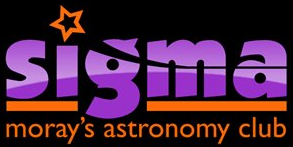Astro Anniversaries
June
| Day | Year | Event |
| 1 | 1888 | The newly-built Lick Observatory was officially transferred to the University of California, becoming the first permanently occupied mountain-top observatory in the world. |
| 5 | 1819 | John Couch Adams born. A British mathematician and astronomer who first predicted the existence of Neptune from the deviations of Uranus’ orbit from what Newton’s laws require, although the credit for discovery ultimately (and controversially) went to Le Verrier. |
| 6 | 1941 | Sidney Wolff born. She became the first woman astronomer in the world to be appointed director of a national observatory, and contributed to the planning and building of some of the largest modern telescopes. She also became the senior author of the line of introductory astronomy textbooks begun by astronomer George Abell, and her work helps to educate millions of students about astronomy. |
| 8 | 1625 | Giovanni Cassini born. An Italian astronomer who discovered four satellites of Saturn and the largest division in its rings which was named after him. |
| 10 | 1927 | Eugene Parker. An American solar astronomer. His work underlies our modern understanding of the sun’s atmosphere, magnetic field and solar wind. A spacecraft currently exploring the sun is named after him. |
| 13 | 1831 | James Clerk Maxwell born. Scottish physicist who was the ‘father’ of the theory of electromagnetic radiation. |
| 19 | 1846 | Antonio Abetti born. An Italian astronomer, Abetti mainly worked in positional astronomy and made many observations of minor planets, comets, and star occultations. In 1874 he was part of an expedition led by Pietro Tacchini to observe a transit of Venus with a spectroscope. Later, he became Director of the Osservatorio Astrofisico di Arcetri and a Professor at the University of Florence. |
| 19 | 1962 | A team led by Riccardo Giacconi used a rocket-launched detector to discover the first source of cosmic X-rays other than the Sun (Scorpius X-1), thereby introducing the field of X-ray astronomy. |
| 21 | 1814 | Anders Jonas Ångström died. Ångström was a Swedish physicist and one of the founders of the science of spectroscopy. He is also well known for his studies of astrophysics, heat transfer, terrestrial magnetism and the aurora borealis. |
| 22 | 1978 | James Christy at the US Naval Observatory discovered Pluto’s large moon Charon by careful examination of an ‘elongated’ image of the dwarf planet. |
| 22 | 2004 | Thomas Gold died. Austrian-born British astronomer. During the late 1940s, in collaboration with Hermann Bondi and Fred Hoyle, Gold formulated the steady-state theory, of which Hoyle became the leading proponent. Later evidence, however, contradicted this theory and instead supported the big-bang model. |
| 23 | 1993 | Zdeněk Kopal died. He was a Czechoslovak astronomer who mainly worked in England. In his early astronomical career, he studied variable stars and, in particular, close eclipsing binary stars. |
| 24 | 1883 | Victor Hess born. Using high-altitude (for the time, 1911-13) balloons, at considerable risk, he established the existence of cosmic rays, ultimately winning the Nobel Prize in Physics. |
| 24 | 1929 | Carolyn Shoemaker born. An American astronomer and a co-discoverer of Comet Shoemaker–Levy 9. She discovered 32 comets and more than 500 asteroids. |
| 26 | 1730 | Charles Messier born. A French astronomer who published a catalogue of 110 galaxies, nebulae and star clusters to prevent astronomers mistaking these fuzzy objects for comets. The objects were numbered and catalogued with the prefix ‘M’, and came to be known as the Messier objects (eg M31 is the Andromeda galaxy). |
| 29 | 1868 | George Ellery Hale born. American astronomer. He discovered magnetic fields in sunspots and was also involved in the construction of some of the largest telescopes of the first half of the 20th century. |
| 30 | 1908 | An enormous explosion occurred 3 to 6 miles above the Tunguska River area of Siberia, caused by the impact of a rocky or icy meteoroid. Some 800 square miles of forest were flattened like matchsticks. |
LAST UPDATED: 2024-06-04
